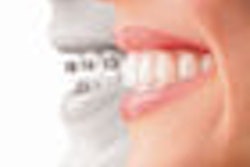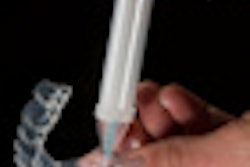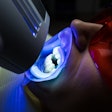
A 69-year-old New York woman has succeeded in her efforts to hold Merck, makers of the osteoporosis drug Fosamax, accountable for her osteonecrosis of the jaw (ONJ) and related health issues.
On February 5, a federal jury ordered Merck to pay Rhoda Scheinberg $285,000 in the case, which was originally filed in 2008 in U.S District Court for the Southern District of New York. The jury found that Merck was not upfront about the risks associated with Fosamax and did not do enough to warn patients taking the drug, according to a press release by law firm D. Miller & Associates.
Judge John Keenan previously granted Scheinberg's motion for summary judgment with respect to her claims for breach of warranty, fraudulent misrepresentation and concealment, and punitive damages, but denied her claim for design defect and failure to warn.
This is only the second Fosamax/ONJ lawsuit that Merck has failed to win. More than 4,000 similar cases are pending against the company in federal and state courts; so far seven have gone to trial, and Merck has triumphed in five of those.
Mental anguish
According to court documents, Scheinberg began taking Fosamax in 2000 and continued taking it through 2006. In October 2006, following consultation with her dentist and an oral surgeon, she had a tooth extracted. Scheinberg's lawyers argued that Fosamax caused Scheinberg to suffer delayed healing and ONJ following the extraction.
"Plaintiff ... has suffered from mental anguish from the knowledge that she will have lifelong complications as a result of the injuries Plaintiff sustained from the use of Fosamax," the original complaint states.
During the trial, Merck produced evidence showing that the plaintiff had severe periodontal disease and that this can lead to dental problems whether or not someone is taking Fosamax. Merck also argued that it acted responsibly in researching and developing Fosamax and monitoring the medicine since it has been on the market. The U.S. Food and Drug Administration approved Fosamax in 1995 for multiple indications, including the treatment and prevention of osteoporosis in postmenopausal women.
"We disagree with the jury's verdict on the failure-to-warn claim. Merck provided appropriate warnings, and the plaintiff was at increased risk for dental and jaw problems regardless of whether she was taking Fosamax," said Chilton Varner of law firm King & Spalding, outside counsel for Merck, in a company statement. "She had a long history of severe periodontal disease."
The only other Fosamax case that Merck has lost at trial involved Shirley Boles, a Florida woman who claimed she, too, developed ONJ after taking the drug.
Boles first sued Merck in September 2009, but that lawsuit resulted in a mistrial. In a subsequent lawsuit, filed in June 2010, Boles said that she used Fosamax from 1997 to 2006 and that she suffered various jaw problems and complications following two tooth extractions in 2002, including several days in the hospital in 2004 to treat her condition.
The jury in the second trial ultimately awarded Boles $8 million in damages, but a judge later reduced the award to $1.5 million. But rather than accepting the reduced amount, Boles sought a third trial. Before that trial began in late 2012, however, the parties agreed to an undisclosed damages settlement.



















